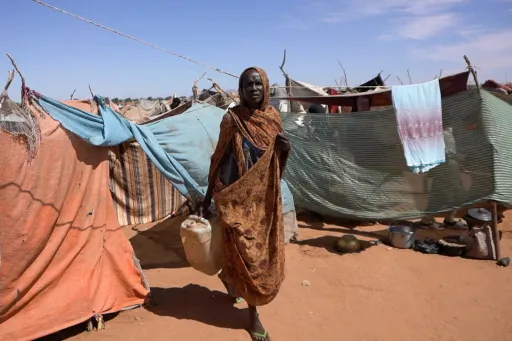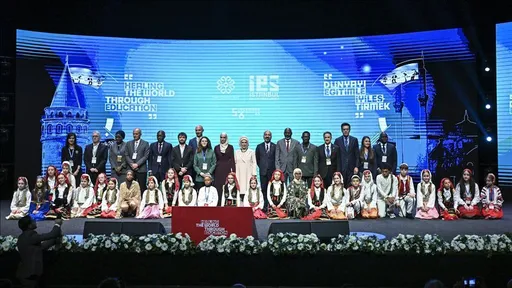By Yahya Habil,
In the first week of December 2023, Switzerland returned a 2,000-year-old marble sculpture to Libya.
The sculpture, which is that of a young woman’s head, was looted from the ancient Libyan site of Cyrene and found in a Geneva warehouse 10 years ago only for it to be returned now as the Swiss federal culture ministry handed it over to the Libyan embassy in Bern.
This event marks a leap forward towards Libya and other African countries reclaiming their ancient heritage and looted artefacts, most of which were stolen during the era of European colonialism which plagued the continent.
However, much remains to be done when it comes to the retrieval of looted African artefacts, as many if not countless African artifacts remain scattered across Europe, with many of them being shamelessly displayed at museums.
An example of this could be the Rosetta Stone. The Rosetta Stone is known for enabling archaeologists and researchers to decipher ancient Egyptian texts.
Although it was originally stolen by Napoleon’s French Army, the monumental stone eventually found its way to Britain after France’s defeat at the hands of the British Army in Egypt in 1801.
Cameroon's stolen 'queen mother'
Another example of an African artifact which resides in European museums is the antique wooden statue of Ngonnso, which is venerated in Cameroon as the “queen mother of the Nso people."
The statue has been in the hands of Germany for more than a century, with no signs of it being returned as bureaucracy continues to stall any repatriation processes.
Moreover, the statue is just one of the estimated 40,000 objects that were looted from Cameroon and are now presented at Germany’s public museums.
This sheer number of stolen artifacts should not come as a surprise. After all, colonialism has always had a thing for theft, be it theft of land, resources, or artefacts.
In other words, colonialism did not shy away from stealing vast amounts of land and resources from its owners, so why would it shy away from “light” theft such as that of ancient artefacts?
It should not fly over one’s head that European powers have had no qualms about looting fellow European nations, as they’ve previously done so. It is therefore not a real surprise that they have no qualms about looting African sites.
In 1796, when Napoleon crossed into Italy as the French army’s general, he got his hands on many works by brilliant artists such as Michelangelo and da Vinci.
When the Armistice of Bologna was eventually signed, he seized 100 pieces which ranged from sculptures to vases and paintings.
Thus, it was only natural for Napoleon to exhibit the same habit a few years later in Egypt with the looting of the Rosetta Stone in 1799.
However, the fact that it was during colonial times that the vast majority of the looted African artefacts made their way to Europe should not form in our heads the narrative that this is purely a colonial phenomenon and distract us from the reality that it is instead an ongoing neocolonial trend, albeit at a much smaller scale.
In 2022, former Louvre president Jean-Luc Martinez was charged with conspiring to hide the origin of archaeological treasures that have most likely been smuggled out of Egypt during the Arab Spring in 2011.
UK's The Guardian reported that many French investigators suspect that hundreds of artefacts were pillaged during the Arab Spring uprisings which swept through the MENA region in 2011, where they were sold to galleries and museums that did not ask too many questions about the previous ownership of the artefacts.
This certainly holds true, as a 2,000-year-old funerary statue of the Greek goddess Persephone was stolen from the ancient site of Cyrene in Libya in 2011 and smuggled to the UK, albeit the statue was eventually repatriated after a case was filed.
Instances such as these showcase that the practice of looting historical artefacts and objects is well-alive, and that it is a neocolonial practice.
It is a neocolonial one because the stolen artefacts always seem to end in Europe, where they are usually placed in high profile museums through which the European countries gain revenues.
This is no different from the classic colonial system which saw Europe benefit financially from Africa’s resources.
Fortunately, African countries have consistently denounced this criminality and are constantly calling for their artefacts and belongings to be returned. However, their calls usually fall on deaf ears.
Thus, the calls and pressure for the repatriation of such African artefacts should only increase and intensify, as that is the only way through which the items can ever hope to be returned.
There are many examples of European countries agreeing to repatriate valuable African artefacts, such as the case of the Benin Bronzes which were looted from the Kingdom of Benin in modern-day Nigeria.
Other African countries should take inspiration from Nigeria’s efforts in demanding the repatriation of the bronzes which are scattered across European museums.
The African Union (AU) has recently been paying more attention to the matter and calling for the retrieval of ancient African artefacts.
In the 2022 EU-AU Summit in Brussels, AU President Macky Sall reiterated the importance of retrieving stolen African artefacts from Europe, as they represent the continent’s “civilisational identity”.
Nevertheless, more constructive efforts need to be put in place if the AU hopes to live up to its name as Africa’s main representative.
If there is anything African countries have learned in regards to this issue, it is that morality is completely out of the question when the looters have openly and shamelessly displayed even the skulls of Algerian resistance fighters at the Louvre museum in Paris.
With such evidence of atrocities committed against Africans being displayed at a European museum, African countries should never rest until morality and justice are restored through the repatriation of all African artefacts.
The author, Yahya Habil, is a Libyan freelance journalist focusing on African affairs.
Disclaimer: The viewpoints expressed by the author do not necessarily reflect the opinions, viewpoints and editorial policies of TRT Afrika.
➤Click here to follow our WhatsApp channel for more stories.
























